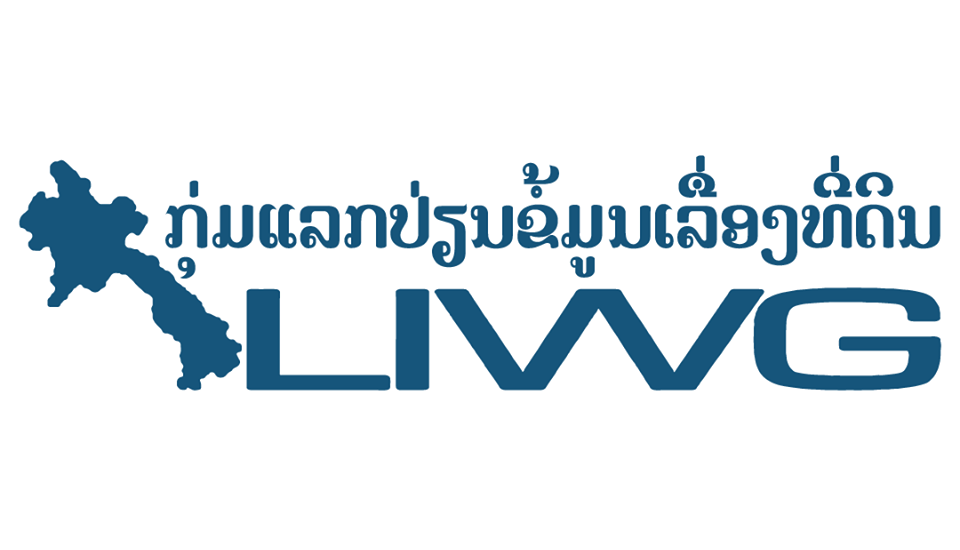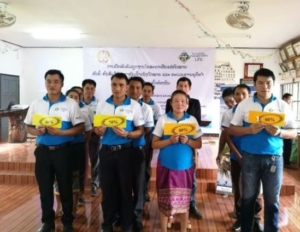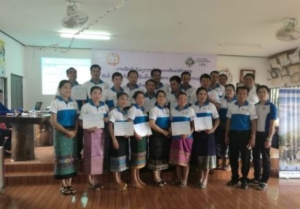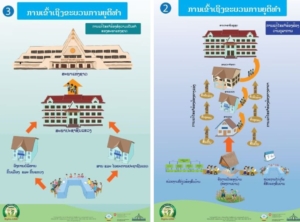Project
Empowering ethnic youth to become agents of change in protecting land rights
-
Amount Funded
96,269 EUROProject Duration
22 Apr 2019 - 31 Jul 2020 -
-
Lead organisation
Land Information Working Group
-
The Land Information Working Group (LIWG) promotes awareness and understanding of the social, economic and environmental impacts of land-related projects, by gathering and disseminating information, facilitating dialogue and carrying out studies. The LIWG consists mostly of international and local civil society organisation staff and other individuals working on land issues in Lao PDR. Nearly 40 different organisations are represented in the core group. The vision of LIWG is for communities to have access to secure and equitable land tenure through fair and inclusive policies and their implementation, allowing for transparency and informed decision-making on land governance for sustainability. The Organisation provides a platform for the members to exchange expertise, experiences, and lessons learned on land matters, and facilitate information sharing between local level involvement of members and policy influencing at the regional and central level and between partners/members. The Land Issues Working Group provides a networking and information hub by acting as a bridging organisation and community of practice to create synergies across land tenure security-related activities of its members.
-
Organisation
The Land Information Working Group (LIWG) promotes awareness and understanding of the social, economic and environmental impacts of land-related projects, by gathering and disseminating information, facilitating dialogue and carrying out studies. The LIWG consists mostly of international and local civil society organisation staff and other individuals working on land issues in Lao PDR. Nearly 40 different organisations are represented in the core group. The vision of LIWG is for communities to have access to secure and equitable land tenure through fair and inclusive policies and their implementation, allowing for transparency and informed decision-making on land governance for sustainability. The Organisation provides a platform for the members to exchange expertise, experiences, and lessons learned on land matters, and facilitate information sharing between local level involvement of members and policy influencing at the regional and central level and between partners/members. The Land Issues Working Group provides a networking and information hub by acting as a bridging organisation and community of practice to create synergies across land tenure security-related activities of its members.
-
Project
Empowering ethnic youth to become agents of change in protecting land rights project uses an innovative approach to stimulate and strengthen the involvement of youth (boys and girls) from ethnic backgrounds in their communities when it comes to land related issues, using intergenerational dialogue and arts as a medium:
- To exchange about issues, positive change, and vision for a better future, and
- To empower them to better protect land rights in their communities.
The project takes an innovative approach in using community and youth-led artistic supports to foster mutual learning (of the youth, their communities, and Land Information Working Group), and to empower the young generation. The project starts with an intergenerational dialogue, respectful of the communities’ identity and oral tradition, using photography and story-telling in order to capture and document environmental changes from local perspectives, as well as the desire for a better future. After being equipped with tools, knowledge, and skills, the youth become the actors of short theatre plays aiming at sharing with their peers their newly acquired knowledge on land rights. Videos are also recorded to document the learning process and the theatre production is made available online as a learning product.
-
-
Empowering ethnic youth to become agents of change in protecting land rights project uses an innovative approach to stimulate and strengthen the involvement of youth (boys and girls) from ethnic backgrounds in their communities when it comes to land related issues, using intergenerational dialogue and arts as a medium:
- To exchange about issues, positive change, and vision for a better future, and
- To empower them to better protect land rights in their communities.
The project takes an innovative approach in using community and youth-led artistic supports to foster mutual learning (of the youth, their communities, and Land Information Working Group), and to empower the young generation. The project starts with an intergenerational dialogue, respectful of the communities’ identity and oral tradition, using photography and story-telling in order to capture and document environmental changes from local perspectives, as well as the desire for a better future. After being equipped with tools, knowledge, and skills, the youth become the actors of short theatre plays aiming at sharing with their peers their newly acquired knowledge on land rights. Videos are also recorded to document the learning process and the theatre production is made available online as a learning product.
-
The young participants of the project proved themselves as willing to engage themselves on information dissemination around land conservation and natural resources conservation, including relevant laws. Because the communities where the youth volunteers disseminated this information were mostly comprised of indigenous people, a variety of tools were used to ensure that the public understands the legal content. An in-depth training led to the development of fictitious roles and legal practices that were launched at the villages by 20 youth volunteers. Descriptions, videos, and role play, for example, were used to stimulate and assist villagers in understanding the legal content. Villagers comprehended the legal content that young people presented, as expressed during local activities. Furthermore, villagers recognised the importance of the activities and encouraged more young people to participate. Moreover, a legal calendar that it provides similar information based on images helped to make issues more accessible and easier to understand.
Media:
Legal calendar:
Photos during the dissemination event:


Poster on how to access the justice process:







